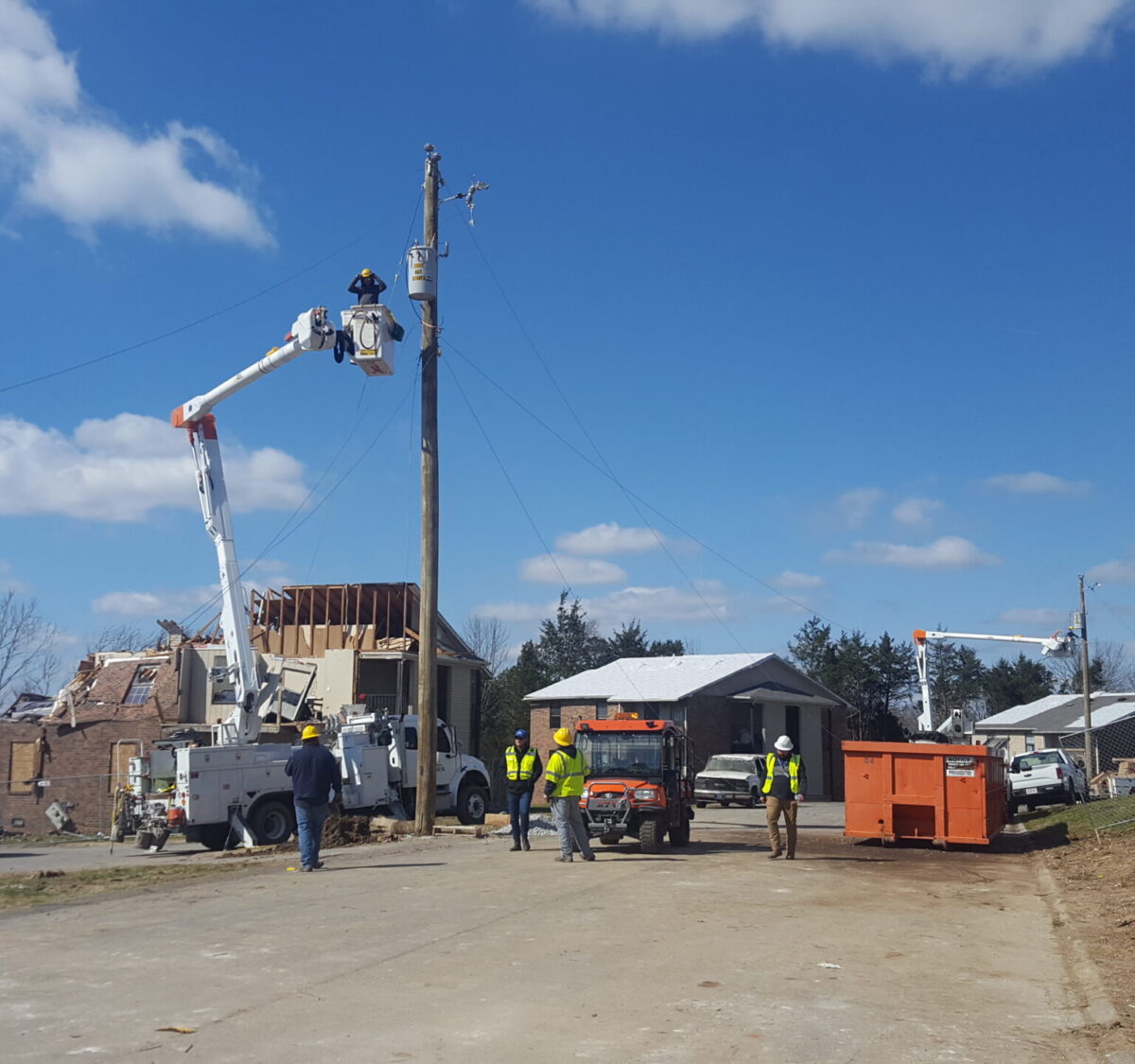Exercise aims to enhance Nashville’s preparedness measures ahead of natural disasters
NASHVILLE, Tenn. — (May 30, 2025) To make Nashville’s infrastructure more resilient, Tennessee State University (TSU) is joining with local and federal partners to conduct a virtual simulation of the 2020 Nashville tornado to understand how innovative microgrid systems and self-contained electrical systems with defined geographic service areas can safeguard critical systems.
The partnership is between TSU, EPRI, L&T, the Tennessee Valley Authority (TVA), Nashville Electric Service (NES), and the Metropolitan Government of Nashville and Davidson County. The simulation is a part of the ARCHER (Accelerating Resilience of the Community through Holistic Engagement and use of Renewables) project with EPRI. ARCHER aims to evaluate how innovative microgrid systems could better safeguard critical services during such devastating events. The simulation will take place in the engineering building on TSU’s campus.
“At TSU, we are committed to fostering partnerships that bridge research and community needs,” says Dr. Saleh Zein-Sabatto, professor and chair of the Department of Electrical Engineering at TSU. “Through ARCHER, we are not only advancing technology but also empowering neighborhoods to build resilience against climate-induced disasters.”
As part of the ARCHER project, TSU convened a Community Resilience Advisory Board, or CRAB, comprised of leaders in the North Nashville neighborhood, to provide feedback on important community assets that should be prioritized for energy resilience, infrastructure hardening and power restoration in the event of an outage. This approach allowed for community input to be incorporated into the model used during the simulation.
“NES realizes integrating distributed energy resources like microgrids, including solar PV, is crucial for enhancing the reliability and resilience of our grid,” says Tony Richman, Engineering Manager-Grid Transformation, with NES. “Initiatives like ARCHER that involve our customers firsthand, help NES prepare for unforeseen disruptions and strengthen relationships in the communities we serve.”
Georgia Caruthers, a Senior Project Manager at TVA, says, “We are proud to collaborate with TSU and others on the ARCHER project, as it highlights TVA’s mission to the 10 million people we serve to continuously work to make our systems more resilient—especially during times of severe weather.”
The demonstration will illustrate how the integration of community engagement with cutting-edge utility planning can significantly enhance resilience strategies. As communities navigate the complexities of social, economic, and environmental vulnerabilities, the ARCHER project establishes a new precedent for preparedness in the face of extreme weather.
“This collaboration demonstrates that building community and utility relationships are essential for driving transformative change,” says Durgesh Manjure, Vice President of Integrated Grid and Energy Systems at EPRI. “By merging advanced modeling with on-the-ground insights, we’re shaping a future where energy resilience is within reach for all.”
Arindam Maitra, L&T Vice President of Power System Innovation adds, “The ARCHER interactive dashboards, built on the proven L&T-Spark™ platform, offer a unified solution for integrating utility and community data, enabling advanced real-time situational awareness and enhanced decision-making for utility system operators.”
The March 2020 tornado brought major devastation to the North Nashville area, which is the home of TSU. In addition to the destruction, several residents experienced prolonged power outages as a result of storms. Residents and businesses across the Nashville community will ultimately benefit from the initiative through results that will help them remain prepared ahead of natural disasters.
“The research conducted at TSU has the potential for impactful change in Nashville and beyond, as we adapt our plans to mitigate the disruptions caused by climate-related events,” says Kendra Abkowitz, Senior Director of Sustainability and Resilience from the Mayor’s Office. “This collaborative approach ensures that our community will emerge stronger and more resilient in the face of future challenges.”
Using the frameworks and methodologies developed through ARCHER, the city of Nashville and other communities nationwide will have a proven blueprint to achieve energy security and resilience amid escalating climate events.
###
About Tennessee State University
Founded in 1912, Tennessee State University is Nashville’s only public university and is a premier, historically black university and land-grant institution offering 41 bachelor’s degrees, 15 graduate certificates, 27 master’s degrees, and nine doctoral degrees. TSU is a comprehensive research-intensive institution with an R-2 Carnegie designation, with a downtown Avon Williams Off-Campus Instructional Site and the Otis Floyd Nursery Research Center in McMinnville, Tennessee. With a commitment to excellence, Tennessee State University provides students with a quality education in a nurturing and innovative environment that prepares them as alumni to be global leaders in every facet of society. Visit TSU at tnstate.edu.
Tags:
